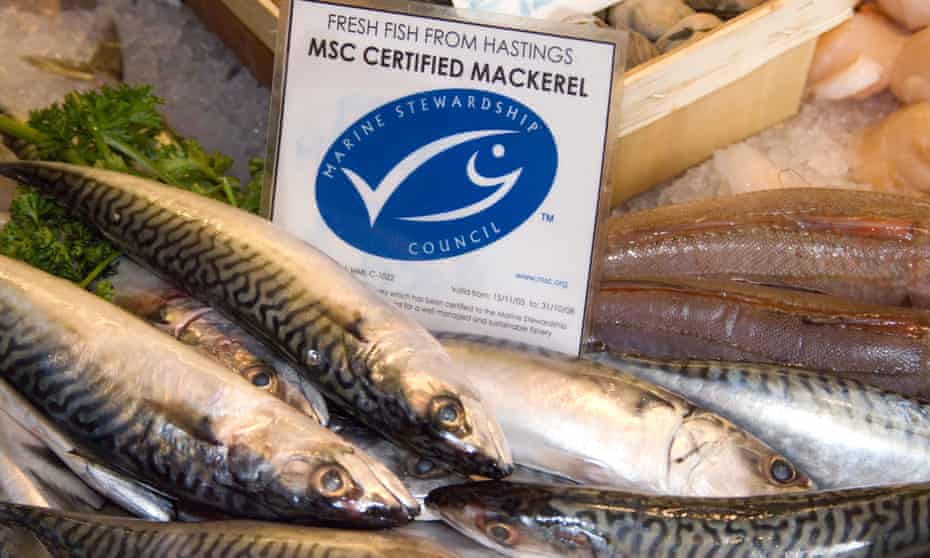Stop overfishing or we’ll buy elsewhere, top UK fish firm warns European states
Young’s Seafood joins calls for sustainable quotas of mackerel, herring and blue whiting to be agreed in line with scientific advice

Last modified on Fri 22 Oct 2021 10.54 EDT
The UK’s largest seafood processor is threatening to stop sourcing fish from the north-east Atlantic unless coastal states, including the UK and countries in the EU, reach a suitable agreement on managing populations this month.
Young’s Seafood has joined Tesco, Co-op, Princes, Aldi, Asda, Waitrose, Marks & Spencer and other retailers and suppliers in calling for urgent action from ministers to manage populations of mackerel, herring and blue whiting more sustainably.
For more than a decade, states fishing in the north-east Atlantic have been unable to agree quotas in line with sustainable limits set by scientists. The result has been a decline of all three populations. In total, catches have exceeded sustainable limits by 4.8m tonnes since 2015.
The crisis has led all three fisheries to lose their sustainable certification from the Marine Stewardship Council.
Young’s said disputes over catch quotas between coastal states including Norway, Iceland, Russia and the Faroe Islands, were “risking the health” of valuable fish populations and “driving businesses to speak up” on the issue.
The company has written to mackerel-fishing countries, which are meeting in London this week to agree shared stock management for the three species, urging them to “put aside national interests” and agree to sustainable measures. It calls for following scientific advice, adopting long-term management plans and employing dispute-resolution mechanisms.
“Young’s considers that the unilateral setting of quotas is an unacceptable threat to shared-stock fisheries and that the coastal states involved in these fisheries should support securing an agreement on total allowable catches in line with ICES [International Council for the Exploration of the Sea] advice and strive for a long-term science-based management agreement,” the company said in a statement.
The company is a founding member of the North Atlantic Pelagic Advocacy group (Napa), a coalition of 50 retailers and suppliers representing nearly EUR250bn (GBP210bn) in purchasing power, set up after MSC certification was lost for mackerel in 2019.
This year alone, quotas for mackerel, Atlanto-Scandian herring and blue whiting in the north-east Atlantic have been set above scientifically advised limits by 41%, 35% and 25% respectively.
Dr Tom Pickerell, a marine biologist at Napa, said: “We are taking too much out each year. We are not yet in the position where they are overfished, but we are heading that way if things don’t change.”
The climate crisis has resulted in shifts in the distribution of the fish populations and each country has set its own unilateral quotas in their own self interests.
Rupert Howes, chief executive of the Marine Stewardship Council, said: “The most worrying thing is the stocks are trending down and that’s why they lost the MSC certification. There is a growing voice from the market, which is saying this needs to be resolved.”
